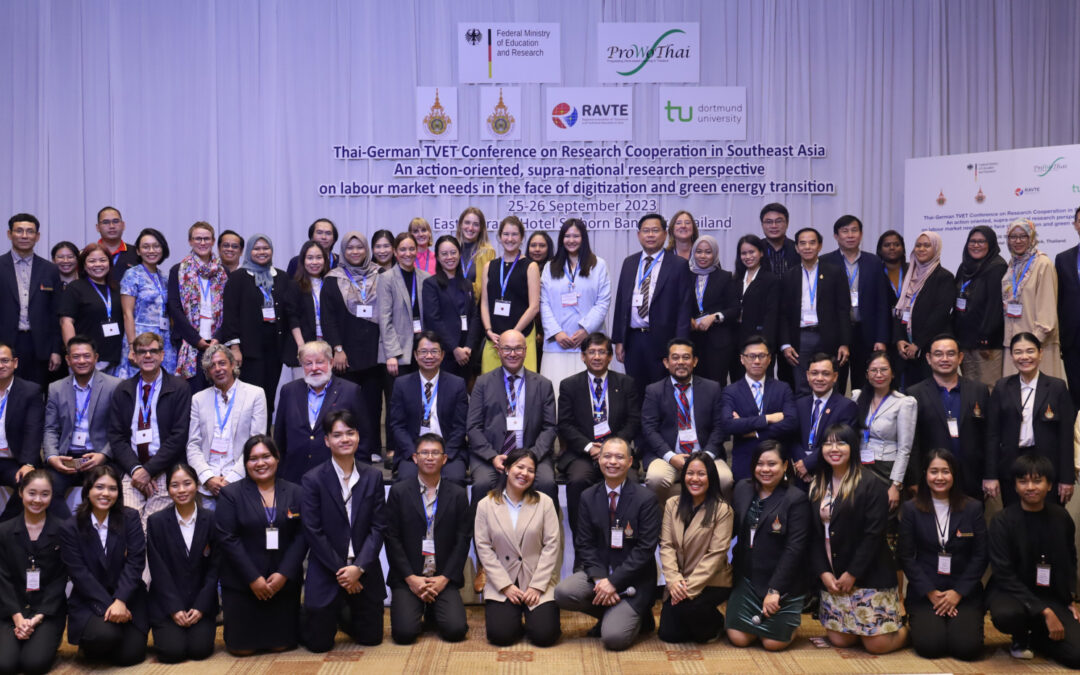In recent years, research on technical and vocational education and training (TVET) has become increasingly vital for developing TVET systems and is recognized by political stakeholders. However, challenges persist in building research capacities at universities and research institutes. Encouragingly, Southeast Asia has seen the establishment of several TVET research institutes like MyRIVET in Malaysia, the TVET Research Center at RMUTL in Thailand, and PUI TVET-RC at Universitas Pendidikan Indonesia, which support both national objectives and international cooperation in TVET research. The Thai-German TVET Conference on Research Cooperation in Southeast Asia, held from 25-26 September 2023 in Bangkok and organized under the BMBF-funded project “Progressing Work-based Learning in Thailand (ProWoThai)”, was pivotal in advancing international TVET research. The conference built on collaboration with the European Training Foundation, UNESCO-UNEVOC, and BIBB, strengthening research ties between Asia and Europe and providing a platform for TVET researchers, practitioners, industry representatives, and policymakers from Southeast Asia and beyond to share their insights on research cooperation.




